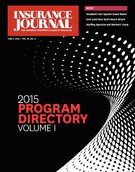A California Court of Appeals has upheld the state’s decision to exclude temporary staffing agencies from self-insuring for workers’ compensation, a ruling that upholds one of the provisions in the state’s sweeping workers’ comp reform law passed in 2012.
The Court of Appeal issued its ruling in mid-May in a case that had one of the state’s largest temp agencies and the Department of Industrial Relations squaring off against each other.
The ruling upheld a trial court’s finding that disagreed with Irvine, Calif.-based Kimco Staffing Services Inc.’s claims that temp agencies are being treated differently than other companies.
Kimco alleged that the state is violating its Fourteenth Amendment right to equal protection.
However, the appellate court denied the appeal, noting “a rational basis exists for treating” staffing companies differently from other employers with respect to self-insurance.
Senate Bill 863, the workers’ comp reform bill passed in 2012, prohibits temporary services employers and leasing employers from self-insuring their workers’ comp.
The court reasoned that the Legislature included this prohibition because these companies “can dramatically change the scope of their workers’ compensation risk by adding new clients and new employees, but the self-insurance deposit would not be adjusted until the subsequent year.”
Defendants, who were represented by DIR attorneys, argued that when a self-insured employer’s security deposit is insufficient, the obligation for the loss falls on the Self-Insurers’ Security Fund and other self-insured employers could be charged a pro rata share of the funding to meet the obligations of an insolvent self-insurer.
Not much is known for the reasoning behind some of the language in SB 863. The law was hammered out between labor and a few large employers. The process of getting SB 863 drafted and through the Legislature was largely a 12th hour, backdoor affair. Insurers weren’t involved in the talks, which were kick-started by Gov. Jerry Brown and overseen by the DIR. SB 863 established a system of independent medical review, addressed lien payments and raised permanent disability payments.
There have been several studies citing the effectiveness of the law in reducing costs within the system, although there have been some who have said the projected savings touted by those in favor of the reforms may fall short.
Attorney Nicholas P. Roxborough, with Roxborough Pomerance Nye & Adreani, represented Kimco in the appeal.
Roxborough said the court’s reasoning about the Legislature’s intent for preventing staffing companies from self-insuring was a stretch, and that merely a theory of why the Legislature may have acted in a certain way was all that was needed to decide against his client in this type of case.
“It’s almost easier to convict someone of murder and send them to jail than win an equal protection case,” Roxborough said.
Roxborough hired renowned legislative researcher Carolina Rose to comb through the records of the process of SB 863’s passage and the law’s language, and she found no evidence that the Legislature intended to exclude staffing companies because they tend to add workers so quickly.
Roxborough believes the move to prevent staffing companies from self-insuring may have been politically motivated.
“It looked as if the unions didn’t like staffing companies because they don’t unionize,” he said.
DIR spokeswoman Erik Monterroza answered an email query for comment from the department on the decision with: “The court’s opinion speaks for itself.”
She did not respond to follow up questions.
Roxborough said he hadn’t spoken with his client yet about the possibility of taking the case to the California Supreme Court, which could decide to hear the case or ignore the request.
The case is Kimco Staffing Services Inc. et al. v. The State of California et al., case number B257258, in the Court of Appeal of the State of California, Second Appellate District.
Was this article valuable?
Here are more articles you may enjoy.



 Insurance Broker Stocks Sink as AI App Sparks Disruption Fears
Insurance Broker Stocks Sink as AI App Sparks Disruption Fears  Maine Plane Crash Victims Worked for Luxury Travel Startup Led by Texas Lawyer
Maine Plane Crash Victims Worked for Luxury Travel Startup Led by Texas Lawyer  Uber Jury Awards $8.5 Million Damages in Sexual Assault Case
Uber Jury Awards $8.5 Million Damages in Sexual Assault Case  What Analysts Are Saying About the 2026 P/C Insurance Market
What Analysts Are Saying About the 2026 P/C Insurance Market 


